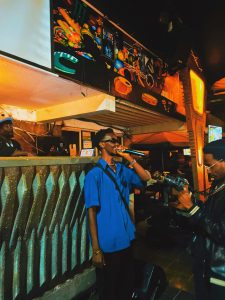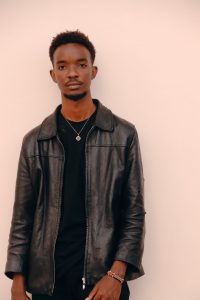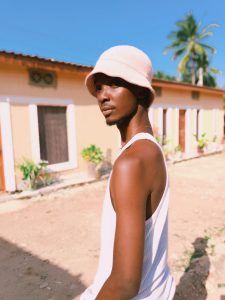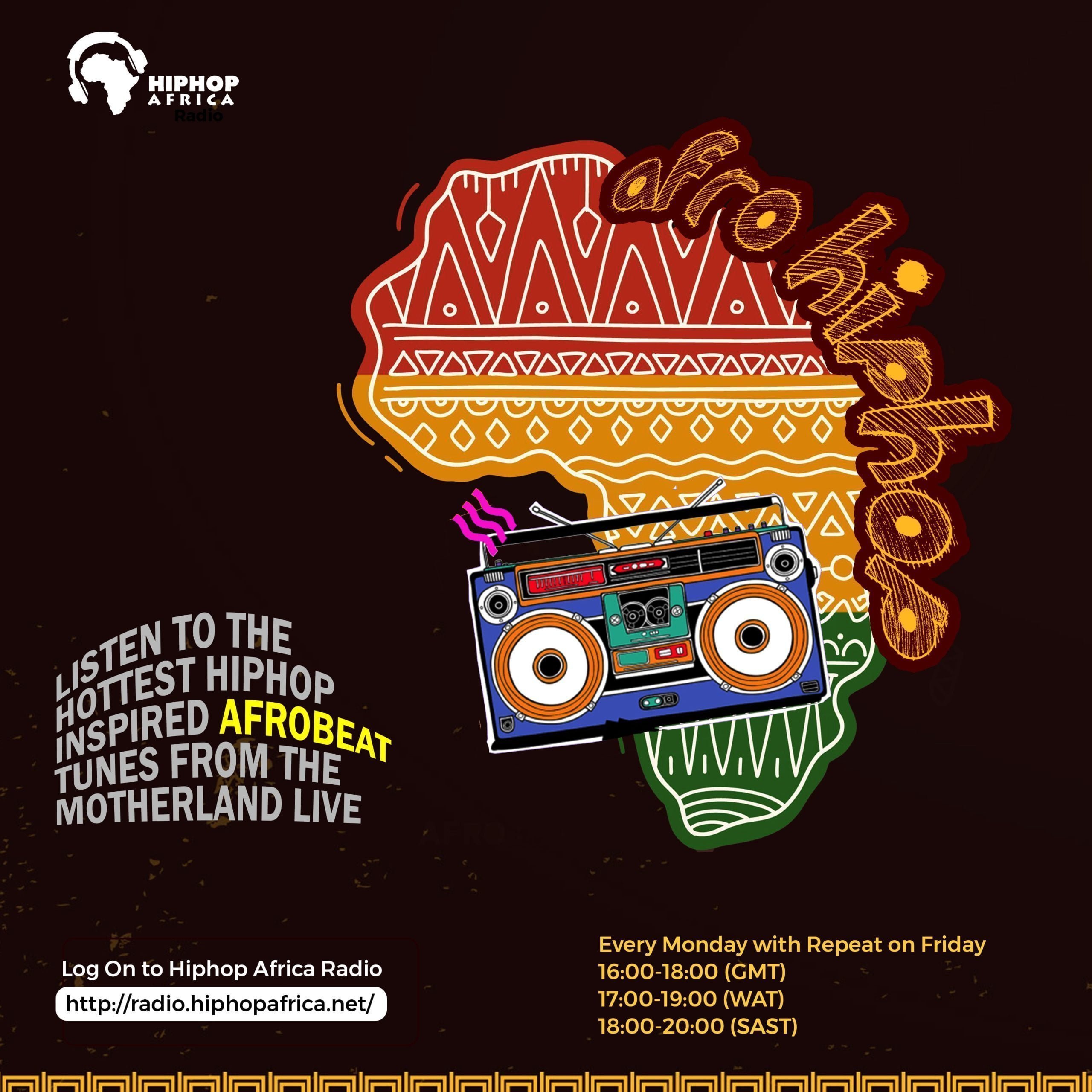An artist that had dreams of being a comedian, Lowki The Great’s seriousness on the booth doesn’t reflect his class clown acts in High school. Describing himself as the full package, Lowki demonstrates his prowess on his new album “Once Upon A Rhyme”. This being his second Album, his catalog boosts of many a singles and his debut album “Rise of Greatness” . True to his words, this sophomore album is a testament of his manifestations.
Having grown up in the artist renowned hood of “Umoja” in Eastlands Nairobi, Lowki lives up to the rep of his hood by putting in immense work, a reflection of the youths of Umoja. Paying homage to local Umoja flagbearers “Wakadinali” he reveals he is inspired by Kenyan greats like Nyashinski as he aims to surpass his own imaginations.
HipHop Africa managed to catch the ever busy rapper and delve into the details of the artist and the project that he claims, shall change Kenyan HipHop forever.
First of all before the official questions even, allow me to ask, who is that woman in the intro sample?
Haha, that’s a good one. The woman you hear in the intro sample is actually a voice recording I stumbled upon of an RnB singer from the back from back in the day.
The message was deep and it resonated with me and my vision for the sound of the album so I used it.
So can you tell us a bit about yourself? Who is Lowki The Great?

Lowki the Great is a storyteller, an artist, and someone who represents the voice of a generation that’s unafraid to chase greatness. I was born and raised in Nairobi, and music has been my outlet since I can remember. I started making music seriously after high school in 2019, and it’s been a crazy ride ever since. My sound is a fusion of modern Afro beats and contemporary hip-hop, and I strive to stay authentic to who I am while still experimenting with new styles.
In an Interview with Trace EA, you mentioned you began your journey in High school, who did you listen to growing up and how did they shape your sound?
Growing up, I listened to a lot of different artists, Both local and international.I was intrigued alot of the urban sound that was vibrant in the Kenyan scene at the time; Mainly the calif and ogopa era. Artists like Jua Cali, Nyashinski,Prezzo and Mejja were one of my biggest influences from Kenya. Their lyricism and ability to tell stories through music had a major impact on me. J.cole was another one—his introspective style and the way he keeps his music real really shaped my approach to writing. I also vibed to old school artists like 2Pac, who was all about message-driven music. They all taught me that good music speaks to the heart and has a lasting impact.
Comparing your journey since “Step by Step” in 2019 to now that you have dropped your sophomore album ,”Once Upon A Rhyme”, how is the journey so far?

Man, the journey has been a whirlwind. Step by Step was my introduction to the scene—it was raw and unfiltered. Since then, I’ve grown so much both as an artist and as a person. Dropping Once Upon A Rhyme was like taking everything I’ve learned and putting it into something bigger. This album is more polished, it’s got a clearer vision, and it’s an authentic reflection of who I am now. There have been challenges, but I wouldn’t trade this journey for anything.
The Album is a 15 track masterpiece, how long has this been in the works and can you tell us the essence and aura behind the Album?
Once Upon A Rhyme has been in the works for about a year. The concept came from the idea of storytelling—my journey, my dreams, my struggles. Each track has its own unique vibe, but together, they create a narrative of growth and self-discovery. The essence of the album is really about reflecting on where I’ve come from while also looking toward the future. The aura is uplifting yet introspective, with Afro sounds laced with hip-hop beats to give it that global yet authentic Kenyan feel.
Tyrell has produced almost every song in your catalog, how did this bromance start and how is it when you work with other producers?
Tyrell is like my brother, man. We’ve been friends since primary school and we just clicked instantly on a personal and professional level. He understood my vision from day one, and every time we get into the studio, it’s magic. We’ve developed this unspoken chemistry that just works. That being said, I love working with other producers too. Each producer brings a different vibe, and that pushes me creatively. But with Tyrell, we’ve built something special—he just knows how to bring out the best in me.
How is it to be in the Kenyan Industry as an independent artist, and if the chance arose, would you sign to any label and if so, why?
Being an independent artist in Kenya has its pros and cons. You get full creative control, but it also means you’re handling a lot of the business side on your own. It’s tough, but I’ve learned a lot. If the right opportunity came with a label, I’d consider it. But it would have to be a deal where I still maintain my artistic freedom. I’m not just looking for a label—I’m looking for the right partnership.
In the track “Unaeza Tell” in the new Album you say. “Besides music kuna life hawajui na live” what life is that?
Haha, yeah, that line hit hard. What I meant is that there’s a whole side of me that the public doesn’t get to see. People see the music, the performances, the social media, but there’s a personal side to Lowki that’s grounded in family, spirituality, and just trying to live a balanced life. I’m all about keeping things real, but I also like to keep certain things private. It’s about having that separation between the stage and everyday life.
In the song “Can’t stop the vibe” how did you settle on Sivel and Oze, it’s a different kind of vibe from the usual Lowki sauce?
I wanted something fresh for Can’t Stop the Vibe, and I knew Sivel and Oze would bring just that. I’ve been following their work for a minute, and they have this unique sound that blends so well with the Afro-urban style I wanted for that track. It was different, but that’s what I love about music—it’s about stepping outside the usual box. They came in, brought their A-game, and the rest is history.
You don’t use profanity in your music, do you think that separates you from the rest of the rappers making your music “Less Gangster” and does it bother you?

I’ve always believed that you don’t need profanity to make an impact. My message is strong enough on its own. I don’t think it makes my music less “gangster”—it just means I’m focused on the storytelling and the artistry. Does it separate me from the rest? Maybe. But I think that’s a good thing. I’m carving out my own lane. It’s not about being “gangster” for me—it’s about being real, and this is who I am.
You have mentioned that you love Nyashinski and Jcole artistry, do you feel you are on track to reach their levels and beyond?
I have mad respect for Nyashinski and J. Cole—they’ve both mastered their craft. I definitely feel like I’m on the right path to reach those levels. It’s a journey, and I’m all about putting in the work and letting my music speak for itself. My goal isn’t just to match them—it’s to surpass expectations and bring something fresh to the game. I’m in it for the long haul, and I’m ready to take things to new heights.
Finally, you have a subtle and clever way to deliver your lines, which artist in Kenya would you like to work with who you think has a similar flow?
There’s a lot of talent out here, but one artist who stands out to me is Chris Kaiga.His flow is crazy, and he’s got that clever wordplay that I really vibe with. I think we could create something truly unique together. There’s also the likes of Scar Mkadinali, Karun, Blinky Bill,Steph Kapela and Njerae who have a unique sound and dope approach with their music and I think our styles could mesh well on a track.
The time for Lowki The Great is here, we can only wait and see what more he has instore for us.


